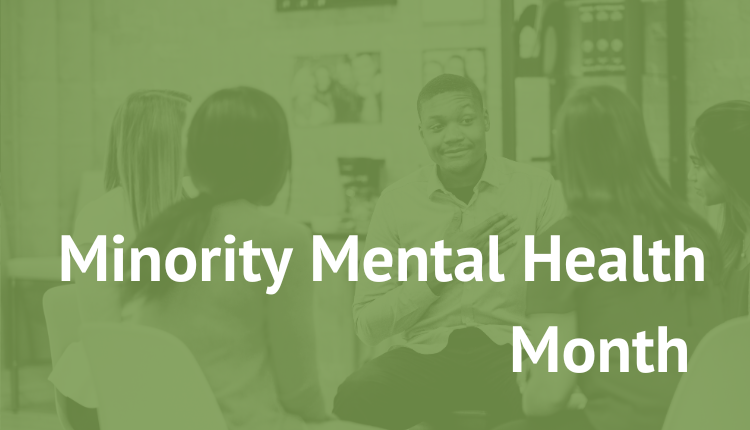Highlighting the Importance of Culturally Competent Care
July marks National Minority Mental Health Awareness Month, a time dedicated to addressing the unique mental health challenges faced by racial and ethnic minority communities. Established in 2008 by Bebe Moore Campbell, co-founder of the National Alliance on Mental Illness (NAMI), this month aims to enhance public awareness and foster dialogue around mental health disparities affecting minority populations.
Understanding the Disparities
Racial and ethnic minority groups often experience higher rates of mental health issues. However, these groups face significant barriers to accessing appropriate care. These barriers include stigma, discrimination, and a lack of culturally competent services. According to the Substance Abuse and Mental Health Services Administration (SAMHSA), addressing these disparities requires a multifaceted approach. This approach includes increasing the availability of culturally and linguistically appropriate services and ensuring that healthcare providers reflect the diversity of the populations they serve.
The Role of Social Determinants
Social determinants of health, such as economic stability, education, and social support, play a significant role in mental health outcomes for minority communities. The Centers for Disease Control and Prevention (CDC) emphasizes that improving mental health equity involves addressing these social determinants. Furthermore, they emphasize the importance of ensuring equitable access to resources for all individuals.
Initiatives and Resources
Organizations like SAMHSA and the CDC are actively working to reduce mental health disparities. These efforts include developing culturally responsive resources, increasing access to mental health care, and advocating for policy changes that support mental health equity. For instance, the CDC’s Office of Health Equity collaborates with various partners to promote and strengthen the emotional well-being of minority populations through culturally responsive initiatives.
How You Can Help
This month is not only a time for raising awareness but also for taking action. Here are a few ways you can contribute:
- Educate Yourself and Others: Learn about the unique mental health challenges faced by minority communities and share this knowledge with others.
- Support Culturally Competent Services: Advocate for and support mental health services that are culturally and linguistically appropriate.
- Reduce Stigma: Engage in conversations that help reduce the stigma surrounding mental health issues.
- Volunteer and Donate: Support organizations that provide mental health services to minority populations through volunteering or donations.
By participating in these activities, you can help ensure that all individuals, regardless of their racial or ethnic background, have access to the mental health care they need.
New Paradigm Recovery’s Commitment to Culturally Competent Care
At New Paradigm Recovery, we recognize the importance of culturally competent care in achieving successful treatment outcomes. Our tailored approach respects the culture and background of each of our clients, ensuring that their unique needs and experiences are honored throughout their recovery journey. By integrating culturally sensitive practices into our treatment programs, we strive to create a supportive and inclusive environment where every individual can thrive.
For more information on how you can support mental health equity, visit SAMHSA and the CDC.
—
References:
1. SAMHSA. (2023). Minority Mental Health Awareness Month: Closing the Treatment Gap.
2. CDC. (2023). Prioritizing Minority Mental Health | Health Equity Features.
We can work towards a future where mental health care is accessible and equitable for all.

